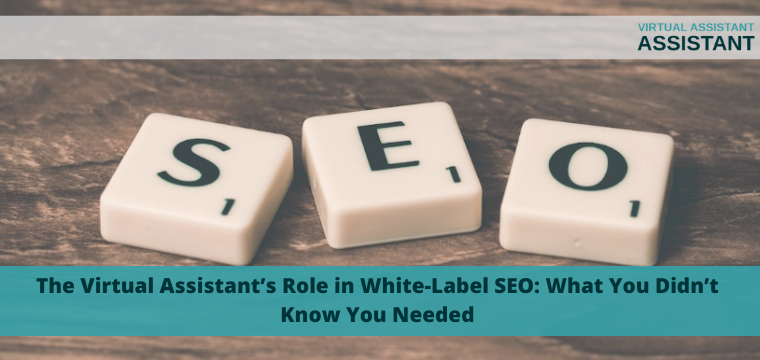 The Virtual Assistant’s Role in White-Label SEO: What You Didn’t Know You Needed
The Virtual Assistant’s Role in White-Label SEO: What You Didn’t Know You Needed
Search engine optimization often feels like a behind-the-scenes art form. Agencies and consultants work hard to improve rankings, polish content, and build trust signals for clients who may never see the full process. But there’s one role that often goes unnoticed in this flow: the virtual assistant. When paired with white-label strategies, a VA can be the hidden link that keeps everything running smoothly.
This is where the conversation around white label seo services gets interesting. Agencies can outsource their technical and creative work while still presenting it under their own brand. A VA steps into this setup not to do keyword audits or coding but to support the delivery chain—handling planning, progress reports, and client updates that make the whole system feel seamless.
Table of Contents
Why Virtual Assistants Matter in SEO Workflows
Think about the number of moving pieces in a typical SEO campaign. There are research notes, content drafts, meeting schedules, and monthly reports. Someone has to keep these pieces organised and ensure nothing slips. A VA is perfectly positioned to take on this responsibility.
Instead of spending hours coordinating, an agency owner or consultant can let their VA handle the admin flow. It keeps communication clear and frees up specialists to focus on technical or creative SEO tasks. The client only sees that things are handled well, which builds confidence in the service.
The VA as the Organizer
Organization is one of the most valuable traits of a good virtual assistant. In white-label SEO, this means keeping track of who is doing what, when tasks are due, and how client expectations are being managed.
A VA can create schedules, monitor task completion, and chase updates without overstepping into the technical side. They become the quiet project manager who ensures the campaign keeps moving. Agencies often find that once a VA is involved, deadlines become less stressful and the workflow feels more consistent.
Client Communication That Works
For many agencies, client communication is the hardest part of SEO delivery. Clients want clear answers, but they don’t always need the technical details. This is where a VA can shine.
By drafting client emails, updating dashboards, and preparing simple summaries, a VA can turn complex results into plain language. Clients appreciate the clarity, and agency teams save time by not re-explaining data. The VA becomes the filter between technical reports and client-friendly updates.
Reporting With a Personal Touch
Reports are at the centre of any SEO project. They’re also one of the most time-consuming tasks. A VA can step in to prepare templates, gather data from multiple tools, and format everything in a way that looks polished.
While they may not interpret the data in depth, they ensure that reports are ready on time and easy to digest. This makes the agency look professional and consistent, and it keeps clients engaged with the progress of their campaigns.
How VAs Fit Into the White-Label Model
White-label SEO is all about invisibility. The end client doesn’t know another company is doing the work because everything is branded under the agency they hired. A VA helps maintain this illusion by smoothing over the operational details.
They keep conversations branded, prepare materials with the agency’s name, and make sure nothing slips that might reveal the outsourcing. In short, the VA becomes part of the brand experience.
Tasks VAs Commonly Handle in SEO Projects
Here are some common ways a virtual assistant might support white-label SEO delivery:
- Scheduling keyword research, content drafts, and campaign reviews
- Drafting client-facing reports and email updates
- Coordinating between the agency and the white-label provider
- Organising project files, deadlines, and task trackers
- Updating spreadsheets or dashboards with campaign results
Each of these jobs saves hours for specialists and makes the agency’s workflow run more smoothly.
The Human Side of SEO Support
SEO is often framed as a purely technical process, but it is also deeply human. Clients want to feel looked after. Teams want to avoid overwhelm. A VA supports both sides by making the process feel manageable and approachable.
They may be the ones sending a friendly reminder, scheduling a check-in call, or formatting a report with clear graphs. These touches make clients feel cared for and keep agencies focused on what they do best.
Why This Role Is Growing
As more agencies rely on white-label partners, the need for coordination grows. Without someone managing the flow, tasks can fall through the cracks. This is why VAs are becoming a quiet but essential part of SEO delivery.
For small businesses and agencies, adding a VA doesn’t just save time. It creates a structure where everyone knows their role, clients stay informed, and results are presented with polish. That’s the real value hidden in this support role.

Conclusion
White-label SEO works best when it feels invisible to the client. Virtual assistants are the ones who make that possible. They manage the details, maintain communication, and ensure delivery feels seamless.
For agencies juggling multiple clients, this role is not a luxury—it’s the missing piece that turns scattered workflows into reliable systems. A VA doesn’t just support SEO; they support the people behind it, and that makes all the difference.
